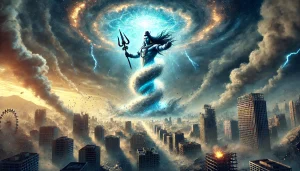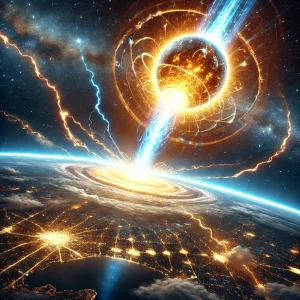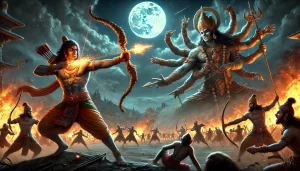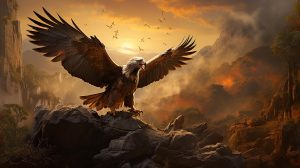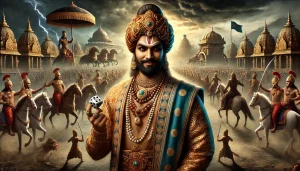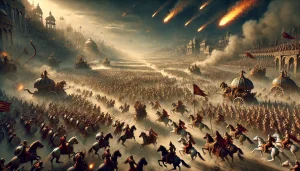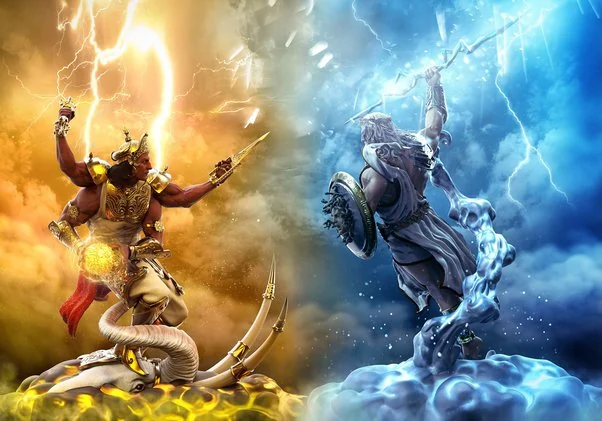
Strange Similarities between Hindu and Greek Mythology
Each boast ancient civilizations with deep, wealthy mythologies. Like several mythologies around the world, Hindu and Hellenic mythologies too share some fascinating similarities. Here are our prime picks:
1. The Holy Trinity & The Greek Trinity
Hinduism has its three Supreme Gods – Brahma, the Creator, Vishnu, the preserver, and Shiva, the Destroyer. Likewise, the supreme gods of Greek mythology are also three – Zeus (The Lord of the Skies), Poseidon (The Lord of the Seas) and Hades (The Lord of the Underworld).
The presence of a form of a Holy Trinity is often found in each of those mythologies.
2. Devas Vs Asuras & Celtic Vs Fomorians
In Hindu mythology, the constant fight is between sensible and evil – the great portrayed by the devas (the gods) and also the evil portrayed by the asuras (the demons). The asuras are the chief tormentors of the devas.
Similarly, Greek mythology is all concerning the Celtic gods of life and lightweight, who wage a relentless struggle against the Fomorians, ancient gods of death and darkness.
3. Rishi Kashyap & Chronus
An interesting reality is that in each these mythologies, both sensible and evil are fathered by an identical person. In Hinduism, the Devas and therefore the Asuras are each speculated to have been fathered by Rishi Kashyap. Within the same manner, the Olympian Gods and therefore the Titans were each fathered by Chronus.
4. Mahakal & Chronus
Mahakal or Mahakaleshwar, a reputation for Shiva, is alleged to rule time and space in Hindu mythology, conjointly referred to as God of Destruction. Chronus, the Greek god of many things, is additionally the god of destruction.
5. The Sapta Rishis & Pleiades, The Seven Sisters
According to the epic Mahabharata, the stars of the massive Dipper were the seven sages or rishis. These seven sages are aforesaid to be those that created the Sunrise and shine. They were merrily married to seven sisters, named Krittika.
In Greek mythology, these seven sisters are referred to as the Pleiades. in step with the traditional Greeks, the Pleiades were seven sisters, the latter condemned by Zeus to support the Heavens on his shoulders.
6. Indra & Zeus
Both Indra and Zeus are the “kings” of the gods. Additionally, their weapons are thunderbolts (in Indra’s case, referred to as the Vajra). Each of them kills a sea-monster: Indra’s opponent is the serpent Vritra; Zeus fights and vanquishes Typhon. Not solely each of them is King of Gods in their respective mythologies, however, even their weapon is nearly identical.
7. Yama & Hades
Both lords of death, they command over the infernal region. They conjointly share alternative characteristics each decide Fates of the souls that pass into their realm, and each is deeply involved with justice. Hades and Yama are two terribly similar characters. Each of them is the lords of the underground.
But apparently, each of them isn’t evil. They merely assign an individual a place in Hell or Heaven, supported their virtues and vices.
8. Kamadeva & Cupid
The gods of affection and need, each Kamadeva (also referred to as Manmatha) and Cupid shoot arrows into the hearts of unsuspecting individuals to form them fall in love. They symbolize love in all around the world.
9. Narada & Hermes
Both of them act as messengers and each of them is sons of two most powerful Gods in their own various mythologies. They share loads of comparable characteristics traits furthermore.
At times, each of them is shrewd and crafty. Each of them is usually better-known to trick and mislead folks with their words.
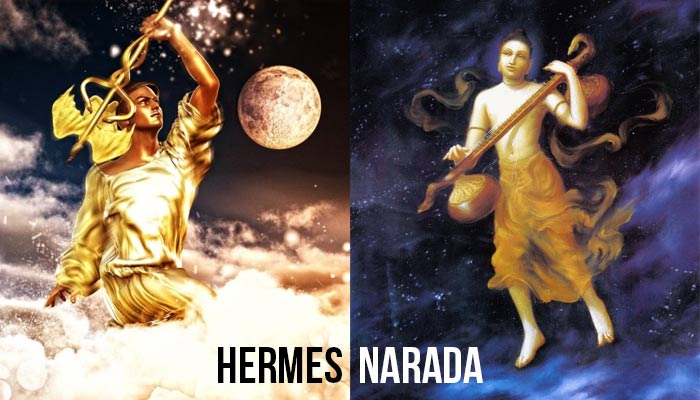
10. Krishna & Achilles
Both heroes of their various mythologies, avatar, and mythical being. Both has strength, mind, glory & charm. Were each killed by arrows piercing their heel. This way the body leave their sole which is the vulnerable a part of their body.
11. Mount Kailash and Mount Olympus
Each are real mountains that exist today; each is deeply important in their various mythologies. Kailash, the home of Shiva, is delineate united of the pillars of the globe. Similarly, Mount Olympus is the setting of the many Greek myths and therefore the home of the twelve Olympian gods.
12. Arjuna & Achilles
Before the Kurukshetra War, Arjuna is reluctant to fight. Before the Trojan War, Achilles is reluctant to fight. Both, however, are extraordinarily practiced warriors and heroes and do ultimately participate in the war. throughout these wars, each loses men who they deeply idolized. Following his son Abhimanyu’s death, Arjuna pledges to kill Jayadratha. Following his comrade Patroclus’s death, mythical being pledges to kill Hector.
13. Vishwakarma & Hephaestus
Vishwakarma is that the Hindu god of skill, and so rules tools and producing, he is also known as God of Workshop.
The Greeks aren’t way behind. Hephaestus is their God of style and manufacture. In each culture, the gods are shown carrying weapons.
14. Lakshmi & Hera
Hindus have a goddess of wealth and prosperity, and she is Maa Lakshmi. In India many occasions are celebrated in the name of Goddess Lakshmi.
Hera is the Greek goddess of wealth and prosperity. People pray for being wealthy & believe in her.
15. Saraswati & Athena
The Hindus have an avid goddess of learning, which is Maa Saraswati. She is the one who is considered as a blessing all cultural and inventive fields.
Similarly, the Greeks have a goddess of knowledge, who is Athena. She is seen as the one presiding over all art forms.
Greek and Indian Mythology are two of the oldest mythologies legendary to man. Though each of those mythologies hasn’t any established reference to one another, yet they share some hanging similarities. These similarities prove that mortals everywhere in the globe are primarily the same.
